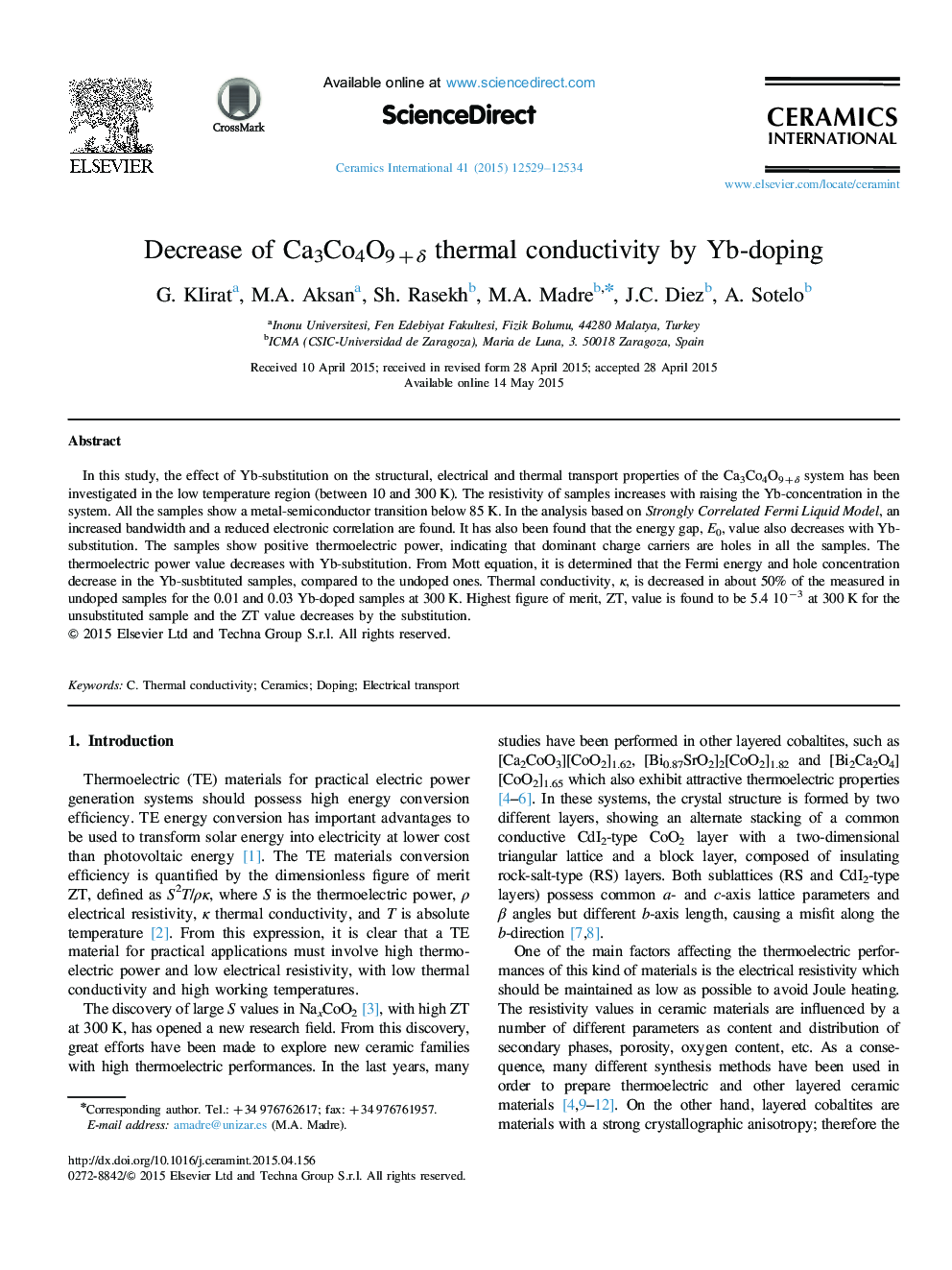| Article ID | Journal | Published Year | Pages | File Type |
|---|---|---|---|---|
| 1459607 | Ceramics International | 2015 | 6 Pages |
In this study, the effect of Yb-substitution on the structural, electrical and thermal transport properties of the Ca3Co4O9+δ system has been investigated in the low temperature region (between 10 and 300 K). The resistivity of samples increases with raising the Yb-concentration in the system. All the samples show a metal-semiconductor transition below 85 K. In the analysis based on Strongly Correlated Fermi Liquid Model, an increased bandwidth and a reduced electronic correlation are found. It has also been found that the energy gap, E0, value also decreases with Yb-substitution. The samples show positive thermoelectric power, indicating that dominant charge carriers are holes in all the samples. The thermoelectric power value decreases with Yb-substitution. From Mott equation, it is determined that the Fermi energy and hole concentration decrease in the Yb-susbtituted samples, compared to the undoped ones. Thermal conductivity, κ, is decreased in about 50% of the measured in undoped samples for the 0.01 and 0.03 Yb-doped samples at 300 K. Highest figure of merit, ZT, value is found to be 5.4 10−3 at 300 K for the unsubstituted sample and the ZT value decreases by the substitution.
